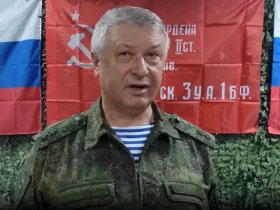Unthinkable until recently, Colombia’s Supreme Court of Justice ordered the arrest of former President Alvaro Uribe in early August, on charges of procedural fraud and witness bribery. The powerful former Colombian president would once again face justice, but this time he seems to have no escape.
Introduction
In 2017, former president Alvaro Uribe denounced Iván Cepeda, then Senator for the Republic. Uribe’s accusation was based on the fact that Cepeda had searched Colombian prisons for former paramilitaries who were fighting the FARC. According to Uribe’s accusation, Cepeda offered benefits and advantages to the inmates to testify against former President Uribe.
In 2018, the Supreme Court of Colombia summoned Uribe to an investigation, considering that there was evidence that he was trying to bribe witnesses not to testify against him. The judicial process continues until this month of August where the current president Iván Duque made a press release lamenting the arrest of former President Uribe, mentioning that the presumption of innocence had been removed, while he called for “conscience” so that Uribe can defend itself properly. These statements made by the current Colombian president produced a division in the political and social spectrum of Colombia, particularly Senator Iván Cepeda considered the message as an “interference” by the president who is nothing more than the Head of State, not the judge or defense attorney.
The accusations on Alvaro Uribe also mention that there are more than 200 complaints and legal cases in which he has been directly involved or in various matters related to corruption and human rights violations.
https://uwidata.com/8936-the-saga-of-colombia-tragedy-and-rebellion-in-latin-america-xx-xxi-century-part-1/
On paramilitarism in Colombia
Since the late 1960s, the Colombian government promoted and contributed to the creation of paramilitary bodies that would help combat the communist insurgency that plagued the country. Particularly the concern came from extreme left guerrilla groups that managed to act in places in Colombia where the State was not present. These groups were FARC, EP, ELN, EPL, and M-19. These groups received help from international communist movements that sought to take over Colombia in the same way they did with Cuba. Already at the end of the 1970s, a Statute of Security and Defense of Democracy was drawn up that endorsed the creation of paramilitary bodies called “self-defense forces”, which were trained by the security forces of the Colombian State.
This strategy was necessary to be able to operate in areas where the Colombian forces were incompetent to defeat the communist guerrillas. These groups had been acting outside the law on many occasions, committing atrocities equivalent to those perpetrated by leftist guerrillas, being denounced on numerous occasions for human rights violations. After these events of discrediting of the paramilitary groups, the Colombian government changed its strategy to one of “low intensity” in 1982. The result was worse because the attacks on both sides increased, while new groups were created anti-communist military outcontrol of the Colombian state. This situation of enormous increase in violence was favored by drug trafficking contacts with the different sectors involved in the conflict, which soon became stronger due to the appropriation of farmland and participation in the illicit drug business. This situation led to the strengthening of both the leftist guerrillas and the anti-communist paramilitaries, which in an international context of the “American Anti-Communist Alliance” on the one hand, and on the other the aid of international communism and Cuba on the other, had produced the highest point of the conflict.
Regarding the demobilization of armed groups, During the government of Alvaro Uribe in 2003, the first negotiations to achieve the demobilization and armistice of these groups were carried out, reaping some initial achievements. The OAS (Organization of American States) collaborated in this process, contributing as a verifying body for paramilitary demobilizations. Alvaro Uribe had appointed Luis Carlos Restrepo as peace commissioner, who would later flee Colombia after being accused of having falsified the demobilization processes of the armed groups.
https://uwidata.com/9328-the-saga-of-colombia-latin-america-has-always-been-prone-to-rebellion/
About the other accusations
As we have already mentioned, Álvaro Uribe groups more than 200 complaints against him and almost 30 judicial processes have been opened for different crimes, such as, for example, the “chuza-das” related to the illegal wiretapping on different human rights activists, as well as journalists and politicians. Killings in Antioquia carried out by paramilitaries in the 1990s when Uribe was governor of that region. It would be followed by the crime of Jesús de María Valle, who was murdered after accusing Uribe’s ties in relation to the army and the paramilitaries. And later, in the middle of the judicial process, Francisco Villalba, one of the main witnesses of Uribe’s relations with paramilitarism, also was assassinated.
Uribe ruled for eight years as Head of Government in Colombia between 2002 and 2010, generating much support, but also many rejections. Within his government cabinet there were also numerous investigations, trials and convictions that affected many of his colleagues in political formulas where Uribe was related, at least indirectly. The judicial processes have covered different illegal areas related to corruption and the violation of human rights. One of the cases that resonated the most was that of Uribe’s most faithful companion, the politician and former minister of agriculture Andrés Felipe Arias, who would end up condemned for having given millionaire subsidies to third parties, even to many Uribe relatives. Something similar would happen with the Ministers of Social Protection and the Interior, who were also convicted of bribing congressmen to pass a bill that would allow the reelection of Uribe in 2006. In 2008, one of the most controversial and sad cases occurred of Colombia, when some members of the army murdered thousands of people from poor sectors accusing them of being guerrillas and putting false evidence to incriminate them, which has led to several military leaders being investigated by the Colombian justice system. These crimes have been called “false positives” and have reached the international press, causing even members of the army to confess for these actions. For this reason, the Colombian justice is being required at this time to take the necessary actions.
https://uwidata.com/10576-the-impact-of-covid-19-in-ibero-america/
And not only Uribe’s political and military near, but there are also criminal complaints against Álvaro Uribe’s relatives, such as, for example, his cousin Mario Uribe and his brother Santiago Uribe, who have been convicted of allying and being related to Colombian paramilitaries. And so we can continue with numerous examples that directly and indirectly smear Uribe’s reputation in these events that have resonated internationally.
Around 8,000 extrajudicial executions have been accounted for in Colombia, where the highest point occurred during the years of Álvaro Uribe’s government. If we make a comparison, for example, with the Pinochet dictatorship in Chile, we observe that under this regime 3,200 people were murdered in a period of 17 years, while in Colombia in half the years 4000 civilians were murdered, which it is incredible.
On August 23, 2020, Uribe was again summoned by the Supreme Court of Justice of Colombia, this time for an investigation that is being carried out to clarify his relationship with the paramilitaries in charge of carrying out a massacre in El Aro in 1997 and the massacre of “La Granja” in the same year, when he was Governor of Antioquia. Álvaro Uribe must appear to testify on September 16, although his political associates consider this summons to be an “injustice”.
Conclusions
Álvaro Uribe is currently one of the most powerful and influential people in Colombia who has earned love and hate in equal measure. His defenders credit him with having achieved the demobilizations and dismantling of armed paramilitary groups, as well as important victories against the FARC and other extreme left guerrilla groups that had carried out real massacres and attacks. Throughout his political life, Uribe has accumulated more than two hundred complaints against him and numerous open legal proceedings in which he is directly or indirectly involved. He is a character who has come to be classified as “dangerous” by his detractors, and has been of great importance in shaping the geopolitical position of Colombia, mainly with a boost from the Colombian rapprochement towards the United States, as well as the beginning of negotiations to make Colombia a NATO partner. Uribe, with a huge file related to causes of corruption, extortion, bribery, assassinations and human rights violations, has had very little press and very few international interventions that have cared about him in the same way that they do, for example with Nicolás Maduro.
In Colombia, many citizens consider that progress is being made democratically thanks to the fact that Colombian justice is making progress after so many years of impediments and blockades imposed by sectors related to Uribe. The division of powers is a fundamental aspect for democracies, and in this sense no citizen should be above the law, nor should procedural guarantees be ignored. But despite this, Uribe’s supporters, including the current Colombian president, are showing fervent support to drop the charges against him.
The judicial processes continue, the Colombian Justice is being put to the test with greater intensity… it will be necessary to continue attentive to what is happening in this important historical and political event of Colombia.

















Leave a Reply